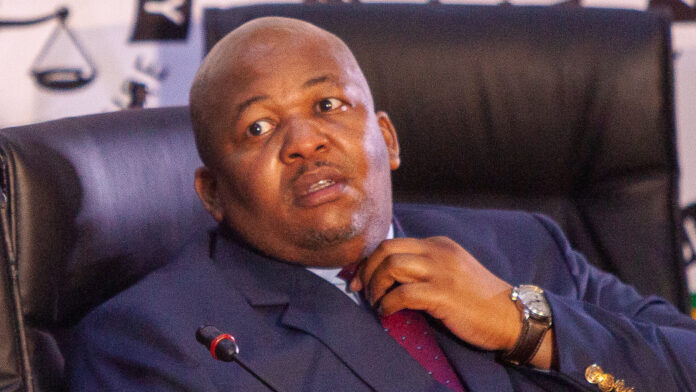
ESKOM’S application for above-inflation tariff hikes over the next three years opens the conversation about what South Africa’s national electricity utility needs to invest in to secure baseload supply for the long term and how it will fund it, Eskom Holdings Group CEO Dan Marokane said at Joburg Indaba on Wednesday.
Eskom has applied to the National Energy Regular of SA (Nersa) for three successive years of tariff increases which have appalled its customers. The application translates into 36.15% in the first year, 11.81% in the second and 9.1% in the third. According to Codera Analytics, Eskom’s average electricity price rose by 408% between 2010 and 2024/5 compared with CPI of 196%.
Marokane said Nersa acknowledged that Eskom has to invest in its assets to protect baseload generation. The utility faces other large expenditures: long-term coal contracts, government’s policy decision to move from environmental levies to carbon tariffs, and R80bn of unpaid bills by municipalities.
“I know it is an emotive subject, but we need to deal with it once and for all,” Marokane said.
Earlier in the day, Eskom chairman Dr Mteto Nyati admitted that the affordability of electricity was a challenge, and tariffs had to be at a level that make South Africa attractive to investors. “But as a business, we have to get back to where we were, otherwise we and our industries will not attract investors.”
Eskom’s tariffs need to be unbundled to reflect the different components of the business, he added.
Marokane said the last six load shedding-free months were the result of Eskom’s robust plans to conduct intensive maintenance last summer, when demand was low, and turn around underperforming power stations.
Growth plans
We need to bring in Medupi unit 4 and Kusile unit 6, as well as the second Koeberg unit before the end of this calendar year. When we have another 2,400MW, we will have sufficient cushion. Above that we need the additional renewable power to be delivered.”
He said it was time to stop talking about load shedding and talk about the Eskom of the future. It has deferred the decommissioning of several of its older coal-fired power stations to 2030 from 2024-2027 to stabilize electricity supply. The deferral is also due to delays in bringing on stream several of the renewable energy projects currently under way.
He said Eskom intends to transition to embrace new technologies, including more renewable energy. “We will start to put together a renewable energy portfolio between now and the next three years,” said Marokane.
Nuclear energy is included in South Africa’s energy plans. “How the programme will unfold needs to be finalised but we see ourselves playing a critical role in it. We think we can manage another 2.4GW of nuclear.”









